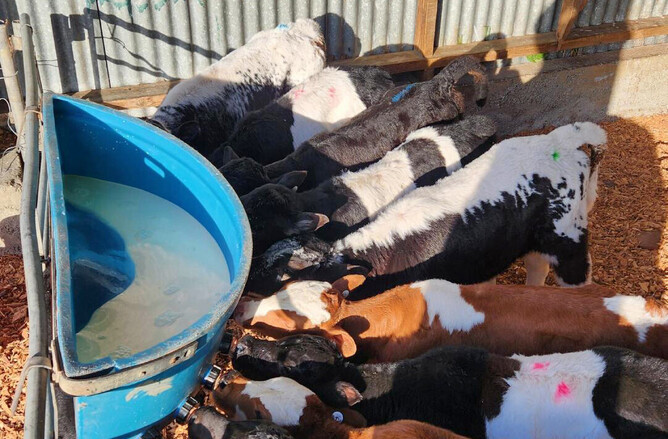Scours is one of the leading reasons for sickness and death in calves in New Zealand, and Rotavirus is a very common cause.
This highly contagious virus can infect calves from birth onwards, with symptoms normally seen around 1-4 weeks of age. The main sign is a watery, pale yellow diarrhoea. The virus can spread very quickly through calf sheds, leaving a trail of sick, infected calves.
Affected calves should be rapidly quarantined and tested to confirm if it’s Rotavirus or a different pathogen. Testing is normally undertaken with a snap test kit and can be done on-farm or in-clinic. If Rotavirus is the cause, Rotagen powder is often used for treatment. It’s dosed through the milk or individually to each calf.
In a situation like this, talking with your KeyVet is a great idea, as they will not only help with a diagnosis, they’ll also be able to give recommendations on quarantine, treatment and prevention options that fit with your farm system.
Prevention is better than a cure. This holds true with this virus, and luckily there are a couple of options for vaccination. For Rotavirus, vaccinating the cow prior to calving is the best way to prevent an outbreak amongst the calves. It’s much easier and more cost effective than treating sick young animals.
Rotavirus vaccines cause the cow to produce antibodies that are then passed on to the calves in your sheds through her colostrum by passive transfer. Because of this, good colostrum management is critical for these vaccines to work.
We have two options for vaccination: Rotavec Corona and ScourGuard. These vaccines are similar, as they both cover Coronavirus and E. coli as well as Rotavirus. Rotavec only requires a single injection to naive animals, which cuts down on expense and labour, but it only contains one of the two strains of Rotavirus found in New Zealand. On the other hand, ScourGuard contains both the G6 and G10 strains of Rotavirus and research shows that it does provide a little bit better protection against Rotavirus.
Both of these vaccines are good options and will provide cheap insurance against the worst types of scours next calving season.

